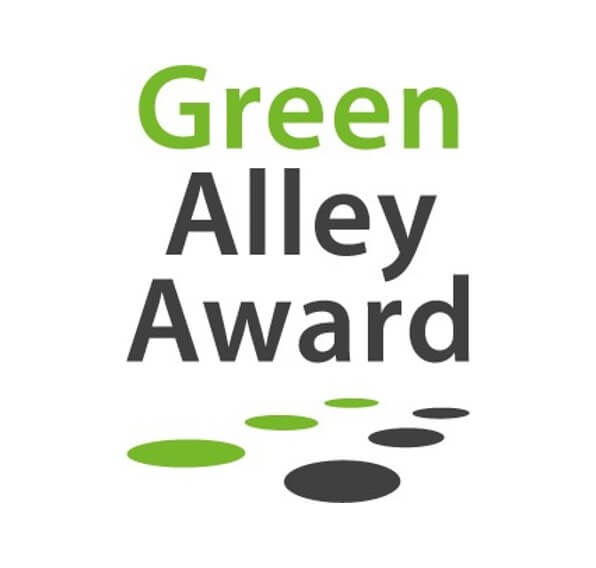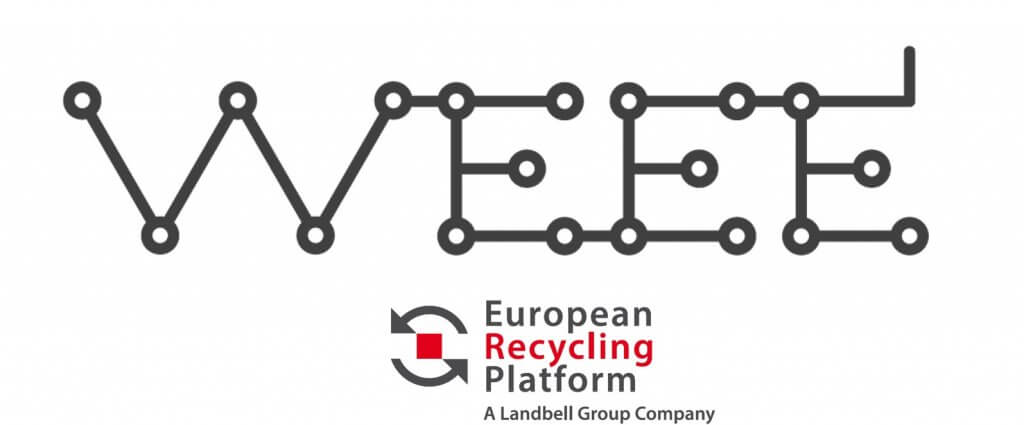Newsletter Issue 2/2019
The latest news from the field of waste management and from our company.
Dear Sir or Madam,
the year proceeds and we find ourselves in the midst of the summer season. In the second issue of our newsletter we report on ERP’s participation in a workshop on extended producer responsibility in Brussels, we inform about how the European Union engages increasingly in the minimization of plastic waste, and we provide an update about the upcoming Green Alley Award. Furthermore, you find advice on how you can implement your corporate waste management sustainably and cost-efficiently. Finally, we report on our collaboration with Dell’s Earth Day, the importance of recyclable packaging design, and the latest legal developments.
We wish you a wonderful and relaxing summer!
Yours,
the ERP Austria Team

ERP attended workshop on extended producer responsibility in Brussels

In spring, European Recycling Platform (ERP) participated in a two-day stakeholder workshop on extended producer responsibility (EPR) in Brussels. Further participants were representatives from the European Commission, independent consulting firm Eunomia, and other key figures in the industry. The workshop presented the scope of two ongoing Eunomia studies: “Effectiveness of the Essential Requirements for Packaging and Packaging Waste and Proposals for Reinforcement“ and “Preparation of the Commission’s Guidance for Extended Producer Responsibility Schemes“.
Discussions at the workshop quickly focused on the harmonization of requirements with all attendees voicing their support that the criteria for modulated fees should be based on standards. The preliminary results of Eunomia’s studies pointed to new challenges arising from the growth of online sales, the increasing complexity of EPR obligations, as well as an increased trend towards lighter weight but not necessarily more recyclable products and packaging. Regarding modulated licence fees Eunomia pointed out that when assessing different variants and deriving political recommendations also the required system costs have to be considered. Moreover, ERP presented its recommendations on the principles for modulated fees, which were positively received by all participants.
The full studies from Eunomia are set for release by the end of 2019.
Deposit return scheme for drinks packaging: new trend in the EU

As the European Union (EU) engages increasingly in the reduction of plastic waste, also among the member states there is a growing effort to manage a transition to a circular economy. One of the most remarkable examples is Great Britain, currently working on the implementation of its first deposit return scheme. The British system shall be oriented towards systems already existing in countries like Denmark. There, so-called reverse vending machines are used, which collect the empty drink containers and return the deposit fee to the user. Foundations for the Danish deposit return scheme were laid in 1978, when Denmark implemented recycling laws at the national level and was the first country in the world to do so.
The Balearic Islands have set even more ambitious goals, albeit in a much smaller geographical region, for reuse and reduction of waste. The Spanish islands voted in an extremely ambitious framework for a ban of single-use products consisting mainly of plastic. The new law exceeds the requirements of the new EU Directive for the reduction of single-use plastics and creates incentives for the utilization of reusable packaging.
The examples from the three regions show that in the EU there are still many gaps in regulations regarding the reduction of packaging waste. On the other side, they can be interpreted as a promising trend for the introduction of successful waste prevention strategies.
The Austrian Federal Ministry of Sustainability and Tourism has commissioned a study on a deposit return scheme, which shall clarify the most important issues and create stable frame conditions for the next ten years by 2019.
Do you wish to receive further information on new laws and regulations in the EU?
Contact us via e-mail: austria@erp-recycling.org.
Green Alley Award 2019: update on the latest developments

The Green Alley Award is a prize for start-ups and enterprises in the circular economy. This annual European award was launched in 2014 by Landbell Group, the world leading provider of environmental services, and the German crowdfunding pioneer Seedmatch.
The prize will be awarded – for the sixth time already – on October 17, 2019. We are happy and proud that we have received altogether 274 applications for the upcoming Green Alley Award!
The submitted projects deal with the topics of waste prevention, recycling, and digitalization in waste management.
The countries with most participants are Germany, UK and Spain.
For further information, please visit www.green-alley-award.com.
Our products: waste management concept

You would like to implement your waste management concept in a sustainable and cost-efficient manner? We support you in creating a waste management concept.
A waste management concept provides an overview of type, amount, provenience, and fate of all waste in a company. Additionally, it documents measures for the optimization of corporate waste management.
The pivotal points of the concept are general information about the company and the facility, a portrait of the company from a process-oriented and waste legislation point of view, organizational precautionary measures, and an estimation of the future development.
When is a waste management concept obligatory?
- if a facility site is newly authorised, or changes of the facility are authorised
- if more than 20 employees work at a facility site
How often is it necessary to update a waste management concept?
- at least every seven years
- if there is a substantial change of the facility site, with implications for waste management
- if there is a change of the facility site which is subject to authorisation
What are your benefits?
- overview of the status quo regarding waste management in the company
- highlighting weaknesses as well as potential for improved processes and savings
- reduced costs due to prevention or better separation of waste
- qualitative waste prevention, i.e. reduction of hazardous waste
For further information concerning our offers, please contact us: austria@erp-recycling.org.
ERP Austria supports Dell Technologies organizing their first EARTH Day

On April 25 and 26, 2019, Dell Technologies organized their first EARTH Day together with CBRE Corporate Outsourcing GmbH. Batteries and waste electrical and electronic equipment (WEEE) were collected by European Recycling Platform (ERP) Austria GmbH and subsequently disposed of in an adequate manner.
For two days, employees of the company Dell Technologies in Austria had the opportunity to deposit disused batteries and WEEE, accumulated over time, at the collection point of ERP Austria. In total, 335 kg of small electric appliances and 5 kg of portable batteries were collected, which were subsequently brought to recycling, in a manner that is adequate and conforming to the law.
ERP Austria is expert for compliance and waste disposal and offers their customers top service around the topic of recycling. ERP’s collection point at the EARTH Day of Dell Technologies in Austria was an exceedingly good example for a tailor-made return and disposal solution. In addition, the employees of Dell Technologies were trained in the correct handling and disposal of batteries and WEEE. Of course, also the well-being of the participants was not neglected – in line with the goals of EARTH Day, vegan snacks and soups were served.
New trend: recyclable packaging design

Sustainable packaging should be recyclable, resource saving, and environmentally friendly. In the future, packaging design will be a vital prerequisite for reaching collection and recycling targets in the EU.
In its Circular Economy Package, in force since 2018, the EU defines ambitious targets. Accordingly, circularity of resources as well as collection and recycling rates shall be improved all over Europe. Currently, the recycling rate of package material in Austria exceeds a third. By the year 2030, the rate shall be increased to three quarters of all packaging.
In order to reach the aims of the Circular Economy Package, it is necessary to observe already at the beginning of the value chain that materials can be optimally collected, sorted and disposed after their use. Moreover, it is important to raise the demand for plastics scrap and the use of recyclates.
In Austria, especially plastics are challenging in the field of packaging. A separate collection of further recyclable fractions out of residual and bulky waste should be focused.
FH Campus Wien (university of applied sciences in Vienna) organized a Circular Packaging Day on April 11. This event offered an opportunity for the packaging industry to be informed about current legal requirements and recyclable packaging solutions. The exchange with representatives of the industry as well as recycling companies was emphasized.
Further information can be retrieved from the Circular Packaging Design website: www.fh-campuswien.ac.at/circulardesign.
Important modifications in Austria due to the WEEE Directive (effective from January 1, 2020)

The amendment of the WEEE Ordinance (BGBl. II Nr. 73/2019) was proclaimed in June. With this amendment, in force as of January 1, 2020, fourteen delegated directives for the modification of the ROHS Directive are adapted to state-of-the-art technology regarding the restriction of the use of certain hazardous substances in electric and electronic equipment. Furthermore, reporting obligations due to the WEEE Directive according to the Implementing
Regulation of the European Union are enforced.
In order to comply with the new requirements, at the beginning of next year the following six categories will be introduced (instead of the previous five categories):
- Display Screen Equipment (no changes)
- Gas Discharge Lamps (no changes)
- Temperature Exchange Equipment (renaming): As of the new year, the category "Cooling Appliances" will be renamed to "Temperature Exchange Equipment". This is necessary because oil-filled radiators, which were previously classified as "Large Dimension Appliances", are re-classified and become "Temperature Exchange Equipment".
- Large Dimension Appliances (modification): From January 1, 2020, oil-filled radiators will be counted as "Temperature Exchange Equipment" and no longer as “Large Dimension Appliances”.
- Small Dimension Appliances (modification): The “Small Dimension Appliances” category will continue to exist for products like vacuum cleaners, toasters, appliances for hair and body care, electrical and electronic toys, small electrical and electronic tools, luminaires, equipment reproducing sound or images, sports equipment or small medical devices. Small IT and telecommunications devices are no longer reported as SDA.
- Small IT and telecommunications equipment (new category): This category will include mobile phones, GPS devices, calculators, routers, PCs, printers, and phones.
This means that your ongoing ERP reporting as well as your registration in the central register of the Austrian Ministry (EDM) will change from January 1, 2020: The reporting and the registration will have to be done according to these new categories.
In case of any questions regarding the classification of your products or if you need further information, please do not hesitate to contact us.
News & Events
Latest news and events
It is not only about process and compliance, but also about networking. ERP shares knowledge, insights, and news so that together we promote the sustainable agenda.
News
October 14th, 2022
“Recycle it all, no matter how small”
News
September 13th, 2022

